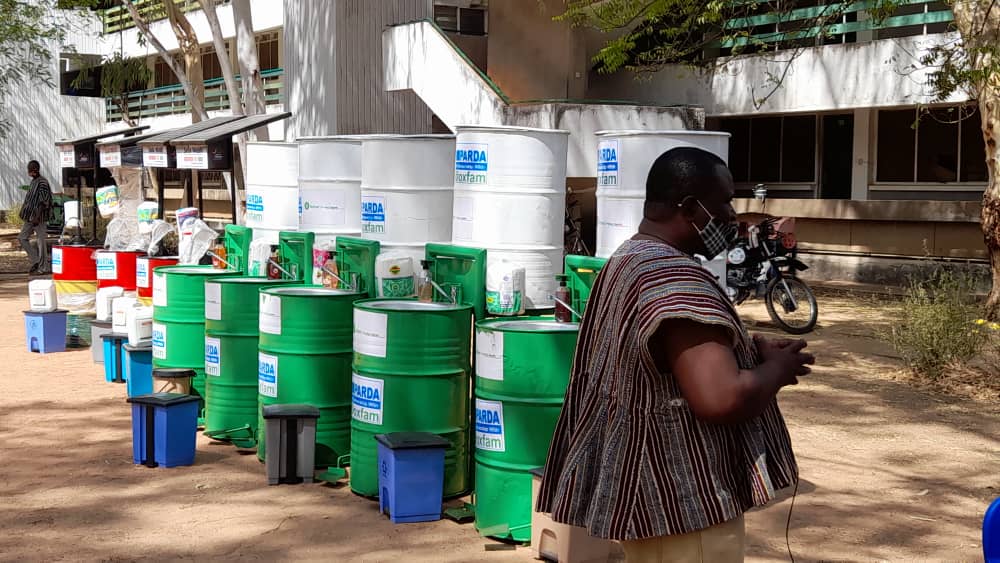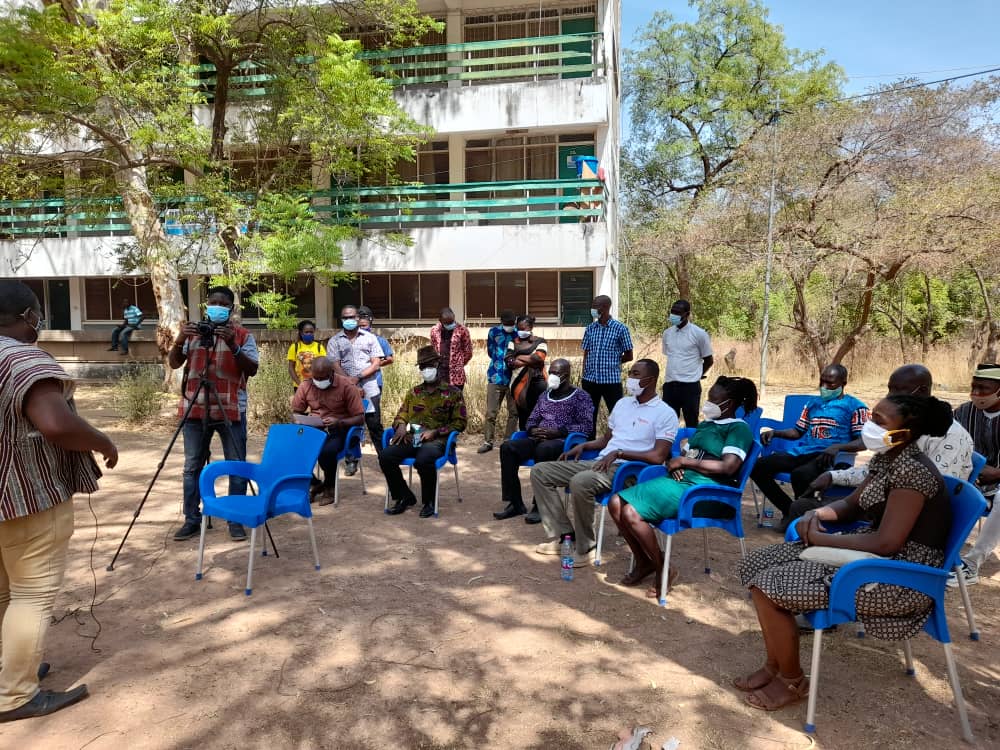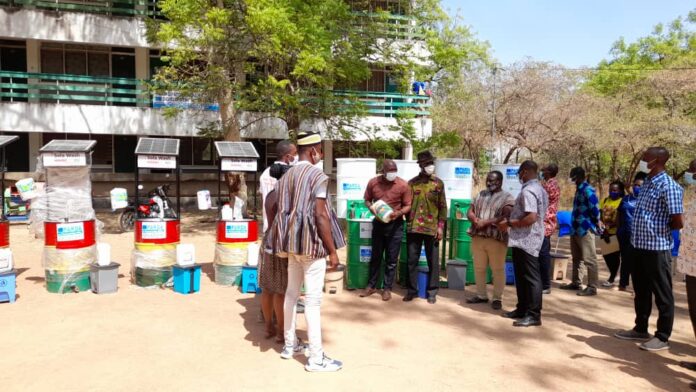|
Getting your Trinity Audio player ready...
|
Health authorities have warned that the new coronavirus (COVID-19) is “very vibrant” in the Upper East Region and have urged families and educators to keep a safety eye on children as schools are returning from a marathon break induced by the pandemic.
The Participatory Action for Rural Development Alternatives (PARDA) has, in collaboration with Oxfam-Ghana and the Widows and Orphans Movement (WOM), stepped up the fight it began against the virus last year by making a fresh donation of solar-powered and manual hand-washing machines to health facilities in the region on Friday to curb its spread.
“We thought that it was down but it is still going up. COVID-19 is still increasing. Hand-washing is one of the cardinal protocols we need to imbibe in order to avoid the COVID-19 disease. It is a serious disease and if care is not taken, we would be taken aback. We want to make this region COVID-19-death-free.
“As the schools are resuming, we are urging all parents to make sure that they inculcate in their children the spirit of hand-washing and wearing of protective masks so that nobody would contract this disease, particularly among our children [even though] we know how children need their freedom. All health workers should inculcate same in the clientele that hand-washing is very key,” the PARDA’s Executive Director, Dr Michael Wombeogo, said at the donation ceremony.
Officials from the Upper East Regional Health Directorate and traditional authorities joined the ceremony to receive the machines on behalf of the facilities.
“From the onset of the COVID, around the first quarter of last year, partners around the globe have supported the Ministry of Health, for that matter the Ghana Health Service, in our battle against this pandemic. We have made good use of the donations. Fighting this disease is a daily affair. We are supposed to let everybody know that the disease is currently very, very vibrant in the Upper East Region. Sometimes, it may not be very prudent to be giving figures,” the Deputy Director in charge of Administration at the Upper East Regional Health Directorate, Paschal Dongzuing, told the gathering.
New automated machines designed by Ghanaian youths in Upper West Region

The WOM’s Director, Fati Abigail Abdulai, delivered a speech at the event, urging stakeholders to sustain the fight until the virus succumbed in total defeat.
She went further to talk about some 400 widows and orphans who received helping hand in the region through an Oxfam-WOM partnership in the wake of the COVID-19 plague, attracting a nod of praise from the audience for supporting those vulnerable individuals to stay alive.
The design of the hand-washing machines, especially the solar-powered ones, struck those who observed how they work for the first time at the event. There is a sensor in it that makes the machine squirt liquid soap and drive out water upon detection of human presence in front of a stainless steel washbasin embedded in the setup.
Designed by some Ghanaian youths in the Upper West Region, the machine also comes with a drum that holds 208 litres or (46 gallons) of water. Dr Wombeogo told Starr News more about the motive behind the design.
“If you look at Upper East Region, we have a lot of sunshine. With this, it means it can be used where there is no electricity supply from the national grid. Besides, it is highly sustainable. People’s hands will not touch it. Your legs will not touch it. For that matter, it will enhance the possibility of non-contact with the machine. That is very helpful and highly preventive against COVID-19.
“One of the key points is that it is also an opportunity for the young people to appreciate initiatives by their colleagues within the country. These are not inventions from outside the country. They were manufactured in Ghana. They were made in the Upper West Region. It can inspire other young people and students to put their knowledge into skill and come out with initiatives that would benefit the country,” he explained.
Schools to be provided with hand-washing machines
Health facilities in six communities are to receive the first batch of the solar-powered and manual hand-washing machines presented on Friday.
The communities are Sapeliga in the Bawku West District, Zuarungu in the Bolgatanga East District, Sumbrungu in the Bolgatanga Municipality, Sakoti in the Nabdam District, Gorigo in the Talensi District and Gia in the Kassena-Nankana Municipality. The Oxfam-Ghana’s Country Director, Tijani Ahmed Hamza, who was also present at the event, announced plans to support schools with the same brands of hand-washing machines.

“These hands-free solar-powered hand-washing facilities are part of Oxfam in Ghana’s innovative Water, Sanitation and Hygiene (WASH) Project funded by the Dutch Ministry of Foreign Affairs (MoFA) as its response to COVID-19 pandemic. Across the country, 90 hands-free hand-washing facilities are being distributed to 90 most deprived health centres, 9 of which are being presented to the Upper East Region today.
“This is part of the general Oxfam in Ghana’s COVID-19 response including distribution of Personal Protective Equipment (PPE), public health education on COVID-19 protocols, building local humanitarian leadership, providing support to district assemblies to prepare disaster preparedness plans and provision of social support to mitigate the impact of COVID-19 on most vulnerable households in Ghana,” the Country Director stated.
He added: “These facilities are improvement from the usual veronica buckets to touch-less ones in order to reduce the risk of COVID-19 spread in Ghana. More of these are being produced to support the educational institutions as schools have been reopened.”
By Edward Adeti, Upper East Region, Daily Mail GH





